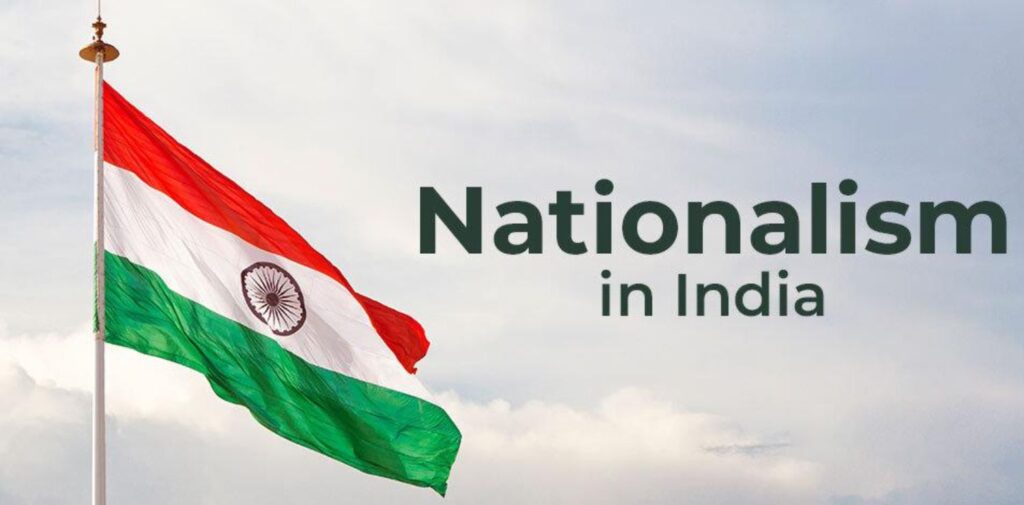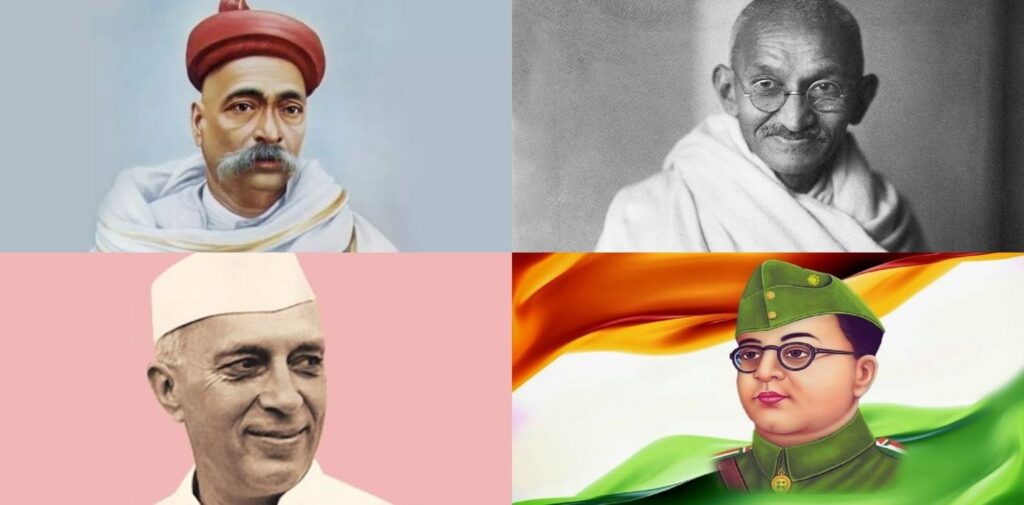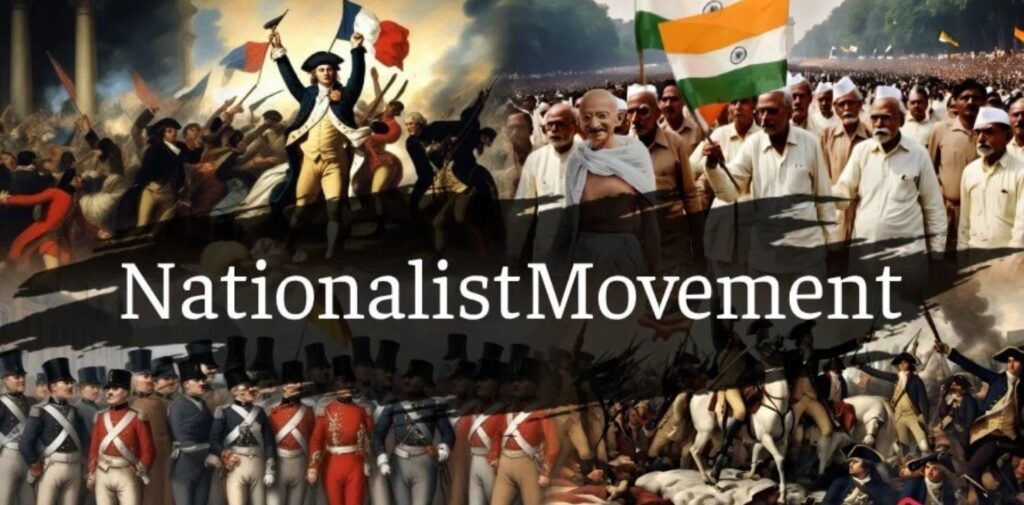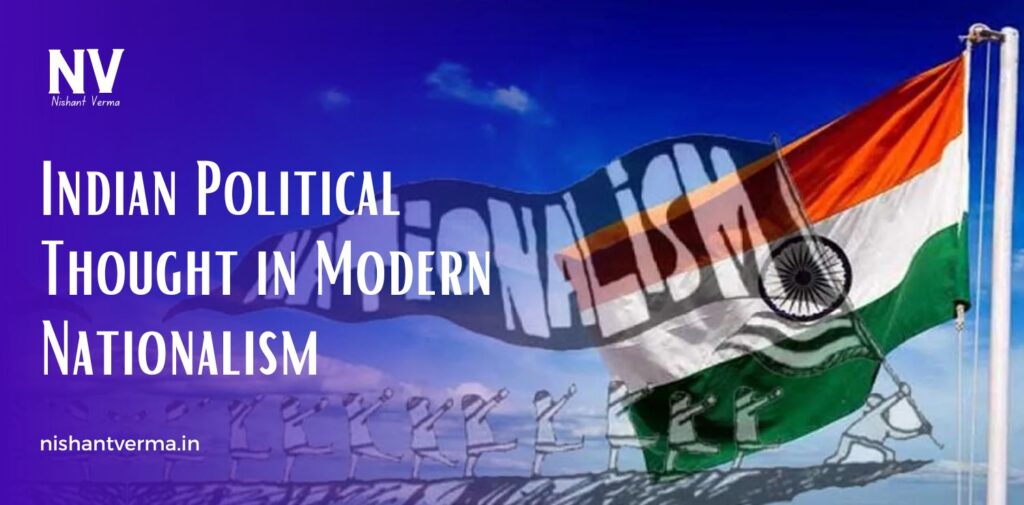Indian political thought has evolved over centuries, shaping the country’s fight for independence, its post-colonial identity, and its vision for the future. As India sought to liberate itself from British rule, its thinkers, leaders, and social reformers developed a powerful political framework that combined traditional Indian values with modern nationalist ideals. The political thought during the modern nationalist movement played a crucial role in India’s struggle for independence and continues to influence the nation’s democracy today.
This article explores the major ideas and philosophies that shaped Indian political thought in the context of modern nationalism, highlighting the thinkers and movements that contributed to the rise of Indian nationalism, and how it laid the foundation for a democratic and diverse India.
The Roots of Indian Nationalism
Modern Indian nationalism emerged as a response to British colonial rule. The British exploited India’s resources, disrupted its social fabric, and imposed foreign ideologies. This created widespread dissatisfaction and a desire for self-rule among Indians. However, Indian nationalism did not develop overnight. It was a product of historical, social, and cultural factors that had been brewing for centuries.
In the 19th century, India saw the rise of several reform movements that began to challenge the existing social and political structures. These movements played an essential role in shaping political thought and fostering the spirit of nationalism. Leaders such as Raja Ram Mohan Roy, Swami Vivekananda, and Dayananda Saraswati sought to awaken the Indian masses to the importance of cultural revival and the need for reforms within Indian society.
These reformers focused on issues such as education, social justice, and the empowerment of women. They challenged practices like Sati (the burning of widows) and child marriage, which were considered part of India’s traditional social structure. Their efforts to promote rational thinking, modern education, and social reforms helped lay the foundation for a modern political consciousness, which later fueled the rise of nationalism.

Key Thinkers in Indian Political Thought
Several political thinkers and leaders in modern India shaped the course of the nation’s struggle for independence. Their ideas and ideologies contributed significantly to the development of modern Indian nationalism. Let’s take a closer look at some of these prominent figures:
1. Bal Gangadhar Tilak: The Father of Indian Nationalism
Bal Gangadhar Tilak was one of the earliest leaders to bring a strong sense of nationalism to the Indian masses. Known for his slogan “Swaraj is my birthright,” Tilak believed that India must not only fight for independence from British rule but also assert its right to self-governance. He advocated for the political awakening of the Indian masses, urging them to reject British control and demand self-rule.
Tilak’s political thought emphasized the importance of self-reliance, national unity, and cultural pride. He also advocated for the promotion of Indian language, culture, and education, which he saw as integral to the growth of Indian nationalism. His role in the Indian National Congress (INC) and his involvement in the popularization of festivals like Ganesh Chaturthi and Shivaji Maharaj’s birthday contributed to the mass mobilization for independence.
2. Mahatma Gandhi: The Architect of Non-Violence
Mahatma Gandhi’s political philosophy was a major turning point in the history of Indian nationalism. Gandhi introduced the concept of non-violent resistance or satyagraha, which became the backbone of India’s freedom struggle. His idea of political thought was rooted in moral values and spiritual beliefs, and he believed that India’s fight for independence must be based on truth and non-violence.
Gandhi’s vision was to create a self-reliant, peaceful, and just society. His emphasis on non-violence, non-cooperation with British rulers, and the boycott of foreign goods helped to unite millions of Indians in their fight for independence. Gandhi’s thought went beyond political independence; he envisioned an India where social harmony, unity, and ethical values would prevail. His belief in “Sarvodaya” (the welfare of all) and ahimsa (non-violence) became the guiding principles for the Indian independence movement.

3. Jawaharlal Nehru: Modernizing India’s Democracy
Jawaharlal Nehru, India’s first Prime Minister, was another significant figure in shaping Indian political thought. Nehru’s ideas on nationalism and democracy were deeply rooted in his belief in modernity and scientific progress. Nehru played a key role in transforming the Indian National Congress into the primary vehicle for Indian independence and in framing the future of independent India.
Nehru believed that India’s independence should lead to the creation of a democratic, secular, and socialist nation. He advocated for a planned economy, scientific and technological progress, and the establishment of institutions that would provide social justice for all Indians. His vision of India was one that combined traditional values with modern ideals, and he worked to build an India that would be both democratic and progressive.
4. Subhas Chandra Bose: The Radical Nationalist
While Gandhi and Nehru focused on non-violence and gradual political reforms, Subhas Chandra Bose represented the more radical side of Indian nationalism. Bose was a fierce advocate of direct action and believed that India’s independence could only be achieved through armed resistance. He famously formed the Indian National Army (INA) to fight against British colonial rule with the help of the Axis powers during World War II.
Bose’s ideas on nationalism were based on his belief in the dignity and freedom of the Indian people. He rejected the idea of British imperialism and promoted the idea of self-reliance and strength. Although his methods were controversial, his commitment to India’s independence and his ability to inspire millions of Indians made him a key figure in the nationalist movement.
The Role of Political Movements in Shaping Nationalism
Indian political thought in the modern era was also shaped by various political movements. These movements not only united people across different regions, religions, and social backgrounds but also helped to shape the course of Indian nationalism.
The Indian National Congress (INC)
The Indian National Congress, founded in 1885, became the primary political platform for India’s nationalist movement. Over time, the INC became the voice of Indian aspirations for self-rule. The Congress, under leaders like Tilak, Gandhi, and Nehru, led the struggle for independence, focusing on political reforms, civil rights, and, ultimately, full sovereignty for India.
The Quit India Movement
The Quit India Movement of 1942, initiated by Mahatma Gandhi, was one of the most significant movements in India’s fight for independence. It called for the immediate withdrawal of British rule from India. The movement galvanized millions of Indians, and despite the brutal repression by the British, it led to a stronger resolve for independence, which was finally achieved in 1947.

The Role of Social Movements
In addition to political movements, social reform movements also played a crucial role in shaping modern Indian political thought. Reformers like Raja Ram Mohan Roy, Ishwar Chandra Vidyasagar, and Swami Vivekananda challenged traditional social structures, fighting for the upliftment of women, education, and the abolition of caste-based discrimination. These social movements not only contributed to the moral and ethical foundations of Indian nationalism but also empowered the Indian people to question social norms and injustice.
Modern Nationalism and Its Challenges
Post-independence, India faced the challenge of defining a modern nationalist identity that would accommodate the diversity of its people. Nationalism, while necessary for uniting the country in its fight for independence, now had to evolve to address issues like communalism, regionalism, and economic disparity. Leaders like Nehru, Patel, and Ambedkar worked to establish a political system that would reflect India’s pluralistic society and promote unity amidst diversity.
Today, modern nationalism in India is still an evolving concept. It seeks to balance patriotism with inclusivity, development with social justice. The idea of India as a democracy with room for every culture, language, and religion continues to shape Indian political thought.
Conclusion
Indian political thought in the context of modern nationalism has been deeply influenced by a range of thinkers, leaders, and movements. The ideas of figures like Tilak, Gandhi, Nehru, and Bose, combined with the social reform movements of the 19th and 20th centuries, have shaped the country’s struggle for independence and its vision for the future.
As India moves forward, the principles of justice, secularism, democracy, and social equality that were central to the nationalist movement will continue to guide the nation. The vision of modern Indian nationalism is one of a united, progressive, and inclusive India, where every citizen can participate in shaping the future of the nation.




